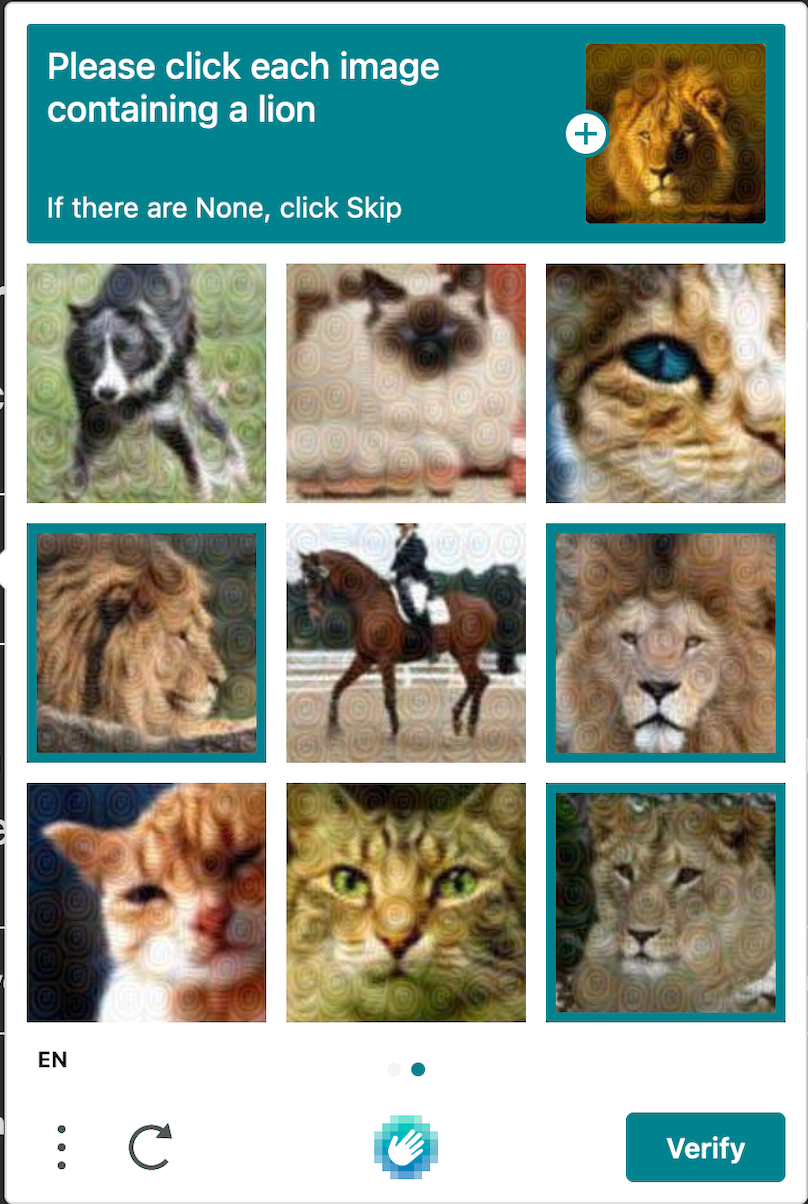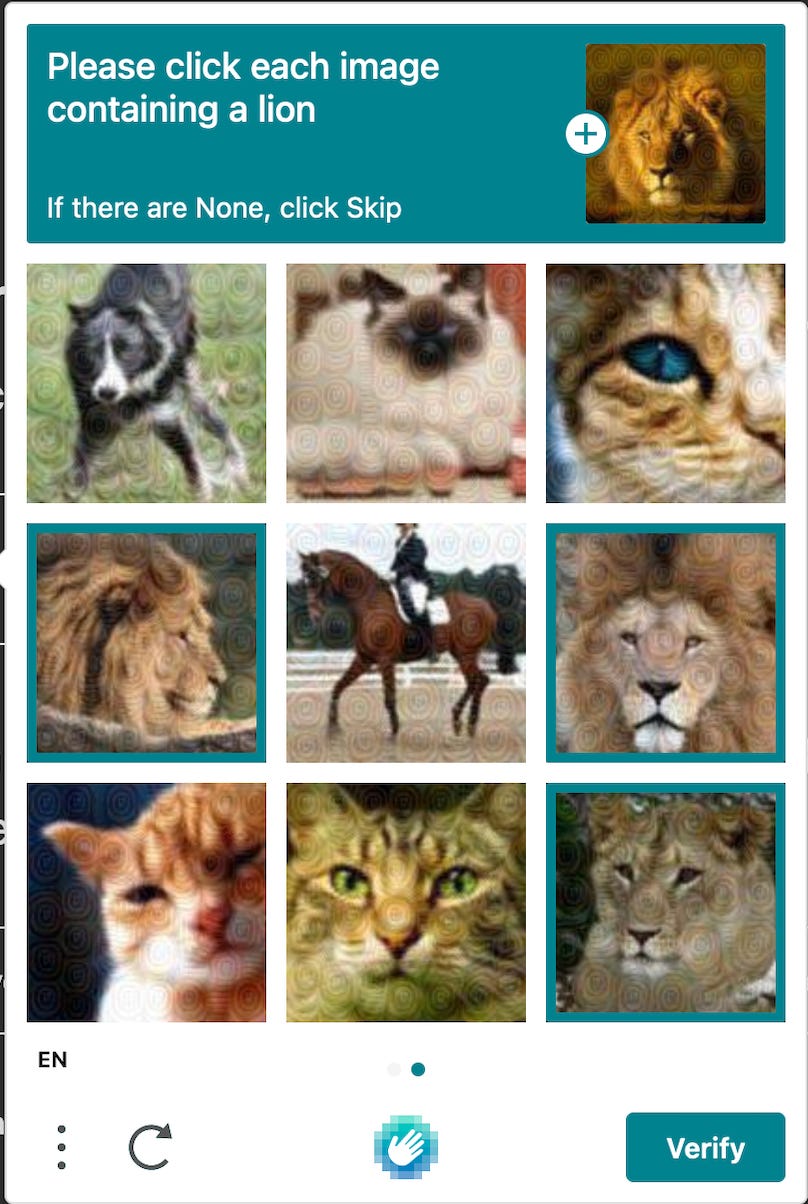CAPTCHA and the B.I.T.C.H-100
After I finished giggling at this ridiculous CAPTCHA (see first image), I pondered the nature of how culturally-specific CAPTCHAS can be, and the potential for them to exclude people who don’t recogni
CAPTCHA and the B.I.T.C.H-100
After I finished giggling at this ridiculous CAPTCHA (see first image), I pondered the nature of how culturally-specific CAPTCHAS can be, and the potential for them to exclude people who don’t recognise or understand the symbols.
Image CAPTCHAs aka Turing Tests such as this one presume that every human in the world:
a) knows what a lion looks like
b) can differentiate between images of a cat and a lion
c) have vision
By not matching the lions, these people are deemed non-humans, robots. 🤖
The cultural bias and exclusion of people who don’t “pass” the test reminds me of the criticisms of early IQ testing.
In high school I studied Psychology. One lesson I remember clearly was about the Black American academic community’s criticism of IQ testing as being culturally biased and it’s use as a tool for discrimination.
To make a point about this bias, an academic created a IQ test that was biased towards African Americans.
I sadly couldn’t find the test referenced in my long lost psychology textbook (I believe it was comprised of many questions about 1920s Jazz).
However, in my search I found another example which, like the CAPTCHA, also made me giggle — the B.I.T.C.H-100. Otherwise known as the “Black Intelligence Test of Cultural Homogeneity”.
The test was created in 1972 by Robert Lee Williams II, Professor Emeritus of Psychology and African and Afro-American studies at the Washington University in St. Louis.
The test showed how easily a test can be constructed to be biased towards and against various a social, racial and cultural groups.
It did that by testing knowledge of words and phrases used in the black ghettos of the early ’70s — words later described as “Ebonics”, a term Mr Williams coined.
I think this test was an excellent example of how turning the tables and can give people who are ignorant of their privilege real life insight into it, by taking that privilege away.
I think it’s also evidence of Mr William’s sardonic sense of humour.
I know I would love a legacy of being not only a powerful instigator of change, but also one of being an epic troll.
Back to CAPTCHAS. While I don’t believe they have been knowingly created and used as a specific tool for exclusion like some IQ tests were, they do still exclude.
When including an image CAPTCHA in your website, first ask yourself: is including this worth p*ssing off my entire user base?
Your second thought should be to what other measures you can take to avoid using one. This is because:
While it can be made accessible, it’s still a significant barrier for users.
And finally, CAPTCHA is a lazy way to pass off responsibility for bot attacks to the user.
Don’t be lazy. Don’t p*ss off your users.
CAPTCHA and the BIT.C.H-100 was originally published in Bootcamp on Medium, where people are continuing the conversation by highlighting and responding to this story.







